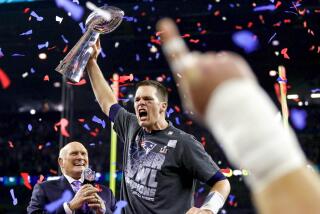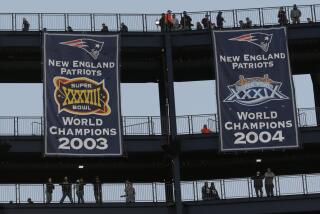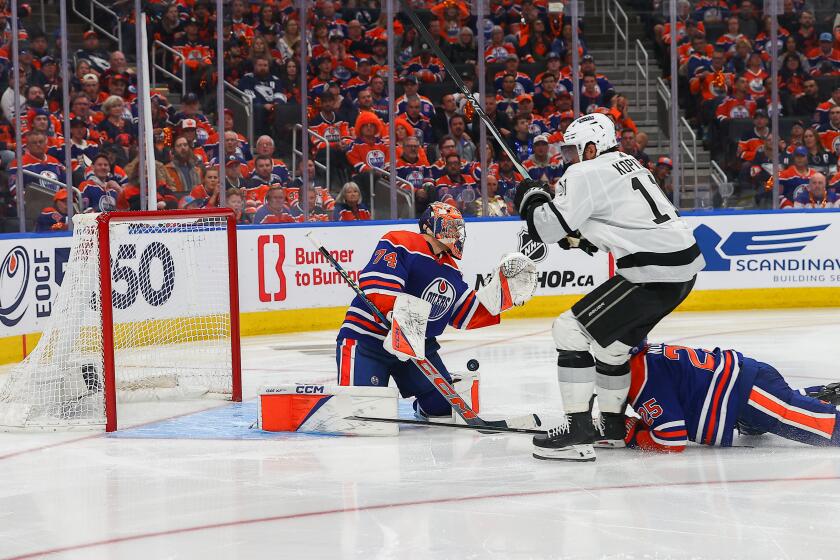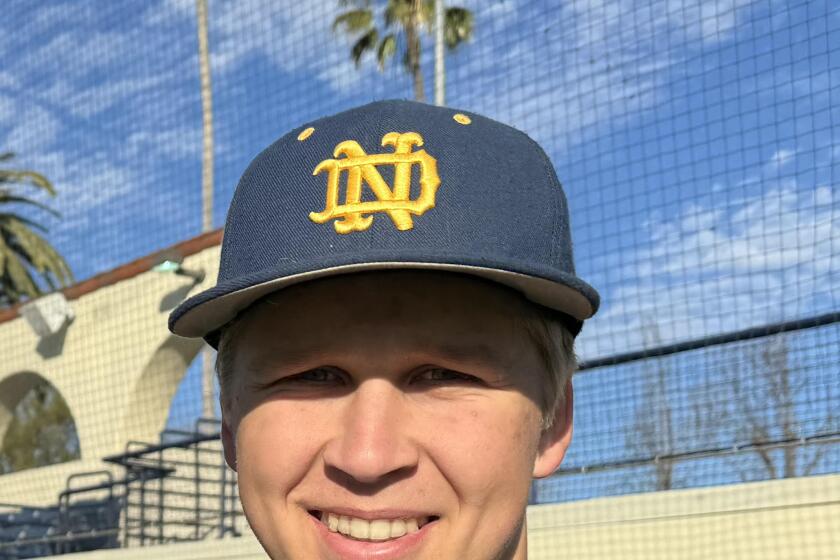The Belichick and Brady Show
Longtime writer Bob Oates shares his commentary on the NFL.
With Bill Belichick in charge and with Tom Brady continuing as the NFL’s most competent quarterback, the New England Patriots are again the best team in football as another five-month race to the Super Bowl begins this week. There are, altogether, only three standout teams: New England, Indianapolis and Philadelphia. The other 29 are giving a new meaning to the word parity. Their players are so closely matched that the 2005 season clearly rests on injuries and coaching. That’s even true of the Big Three. The specific difference will be made by the various coaches’ understanding of pass offense.
For the Patriots, Belichick’s offensive play-calling will be decisive. This is a club that won’t deeply miss departed coordinators Charlie Weis (offense) and Romeo Crennel (defense), but the pressure on Belichick to maintain Weis’ aggressive play-calling will be heavy and constant. In recent years, frequent first-down passing has, of course, been Belichick policy, but a coordinator can always blame the coach for broken plays ordered by a coach. Now, in New England, the coach will have nobody to blame but himself. And that’s pressure.
Belichick’s edge is that he has built the only NFL team that regularly attacks with pass plays unless or until there’s a compelling reason to run, in which case the Patriots can also run. Their most recent Super Bowl conquest was characteristic of what they’re organized to do. They ran the ball for a while, feeling out the Philadelphia defense; but when the Eagles scored first that day, the Patriots instantly changed gears, launching five long pass-play drives to win their third championship in four years.
The odds are against any team’s ever winning four Super Bowls in five years, which would bring a record three in a row to the Patriots. Obviously, it doesn’t follow that because theirs is the best team, they’ll win it all again. Indeed, the percentages favor a new champion. Yet the Patriots, as of last year, were the only pro club playing the game right — with appropriate defenses and aggressive pass offense. In fact, the real NFL mystery is why so many of the other coaches let Belichick get by with it. The reason he wins is spelled out in detail every week in films and tapes. More than any other business, football can have no secrets. The NFL problem is that most other coaches are still playing old-fashioned ground-play football and/or overvaluing defense. The door is open again for passer Brady and signal-caller Belichick — provided only that they keep attacking as usual.
The Next Two: Colts, Eagles
THE INDIANAPOLIS COLTS have been the case example of a good team that doesn’t learn from New England. The Colts play the Patriots all the time without understanding that they’re better than the Patriots and could prove it any year they steal or borrow the Patriot offense. If Brady is the league’s great quarterback, Peyton Manning of the Colts is the league’s great passer. But for years, Manning has beaten himself with the play-action game he loves so dearly. Extensive play-action means, among other things, that you respect running plays more than pass plays; and as a play-caller, Manning has that backwards.
Otherwise, Indianapolis has sufficient strengths. This, in truth, is the only NFL team wise enough to play offense correctly without a fullback. In modern football, fullbacks are outdated and unneeded — an encumbrance to offense, actually — and somebody in Indianapolis must realize that. But in one-back football, of the two ways to go (two tight ends or three wide receivers), the Colts rely too frequently on an extra tight end, shortchanging their passing game. With the most respected three-receiver cast in football, they would easily outclass New England if their passer would only stand back, and, instead of wasting time in play-action, simply throw the ball repeatedly to Marvin Harrison or Reggie Wayne or Brandon Stokley or a tight end or running back.
The Philadelphia Eagles are still one of football’s three great teams and an odds-on the favorite to win the NFC once more with the NFC’s premier coach, Andy Reid. One Eagle problem is that quarterback Donovan McNabb’s game sometimes falls apart because the offensive load is continually on him for a reason that Reid doesn’t address. The reason is that McNabb is the only first-class quarterback playing without a first-class running back — a reality that keeps him in draining pressure continually. The Eagles nearly won the most recent Super Bowl with a tiny 205-pound running back named Brian Westbrook, a wide receiver playing out of position.
In another year of parity, the Eagles are one of the few teams with the resources to rise above it and win Super Bowl XL on Feb. 5 in Detroit. As one of the three teams with a genuine chance to do that, the Eagles are the top present practitioners of West Coast offense. Unlike the others — and unlike the West Coast originator, Bill Walsh — Reid passes most of the time (in a ratio of about 60-40). Walsh passed about half the time, which was unique in the 1980s. These by contrast are passing times — and Reid’s with it.
The NFL’s 2005 Top Five
THESE 10 TEAMS won’t necessarily finish in this order, but as of the first days of the NFL’s 86th season they figure this way:
1. New England Patriots: Best coach, best quarterback, best approach to modern pass-intensive football.
2. Indianapolis Colts: Best passer, best receivers, adequate defense. Ironically, although the Colts pass so often that they’re pegged as a passing team, they lose by not passing enough.
3. Philadelphia Eagles: Have taken over first place in the NFC during an AFC era as personified by the Patriots, Colts and others.
4. Cincinnati Bengals: In quarterback Carson Palmer’s third year, is he ready to move this far up? With an understanding coach, Marvin Lewis, he could be. The Bengals already have the look of a good team with a tough running back, Rudi Johnson, and feared receivers, Chad Johnson and T.J. Houshmandzadeh among others. And Lewis, like Belichick, is a defensive expert. He is the first lifelong defensive man since Belichick to fully embrace pass offense, which gives Cincinnati an edge in a division with coaches who are still determined to run the ball. The Lewis passer, Palmer, needs more experience, to be sure, but with good coaching and able associates around him, he could, with his passing touch, mobility and poise, rise in a hurry.
5. Carolina Panthers: Perhaps the best of the NFL’s old-fashioned run-first teams, Carolina has unilaterally disarmed, obliging a good passer, Jake Delhomme, to play catch-up instead of aggressive let’s-score football. In a division where, however, all the coaches want to run, Delhomme has an advantage. He showed this often last year when injuries claimed his two big-time runners and many of his linemen. The Panthers are blessed with a solid coach, John Fox, whose one blind spot is offensive strategy. After all these years of combat against New England and other good passing teams, Fox still wants to play 1970s football, which will keep Carolina from winning Super Bowls but not division titles in a division like theirs.
The NFL’s Next Five (Entering the Season)
6. Pittsburgh Steelers: To expect Bill Cowher to change his ways is expecting too much of the NFL’s senior coach. He still thinks he can run his way to the Super Bowl. The player who put Cowher in the playoffs a year ago, rookie quarterback Ben Roethlisberger, did it by completing third-down passes after Cowher’s beloved running game had failed. In retrospect, that was not only a tribute to Big Ben but doubtless impossible to do again. Most pro clubs are pass-defense savvy, most noticeably on third down. After a year of looking at Pittsburgh’s 2004 tapes, they’ll beat him in 2005 unless Cowher shifts to a modern offense. Considering the power of the Steelers’ defense and the adequacy of their running attack, Roethlisberger could be a Super Bowl winner as an NFL sophomore if Cowher played New England football.
7. Kansas City Chiefs: The way Coach Dick Vermeil has upgraded his defense — with a bunch of new starters the same year — isn’t the priority method. A gradual improvement would have been more impressive. But if at last the Chiefs have some defense, they can be a contender with their offense, which starts with a dependable quarterback, Trent Green, and includes potential Hall of Famers at tight end with Tony Gonzalez and at running back with Priest Holmes plus a veteran line.
8. Denver Broncos: Since their Super Bowl era, something big has gone wrong for the Broncos every year. They should be accomplishing more than they have lately with a coach like Mike Shanahan and quarterback Jake Plummer. Though Plummer doesn’t add much as a pocket passer, he has other talents that so far haven’t been adequately explored. Maybe this year.
9. St. Louis Rams: The league offers no better example than the Rams of a team that could march into and possibly through the playoffs if the play-caller, Coach Mike Martz, understood New England’s play-calling system. The Rams defer to no opponent in offensive talent (quarterback Marc Bulger, receivers Isaac Bruce and Tory Holt, left tackle Orlando Pace) and play design. Martz loses by calling the right plays at the wrong time.
10. Buffalo Bills: This team is conceivably on the rise with its new coaches and players. Much depends on two things: whether J.P. Losman is an NFL quarterback and whether the New York Jets can get a full season out of their quarterback, Chad Pennington. The Jets are top 10 with an injury-free Pennington.
Parity Rules Most Division Races
THE DISTINGUISHING THING about the teams in the NFL majority is how evenly matched they are as the season starts. They won’t all finish .500, but 29 of the 32 look as if they might. Accordingly, the critics who aren’t fans of any one of these 29 don’t foresee many big games this season. But to home-town fans everywhere, when they’re in a close division race, there are big games every week. And that’s the way they like it.
The American Conference lineup:
AFC West: Could be the closest division race of the eight. If there’s no way to pick a winner — San Diego, Kansas City, Denver or Oakland — it’s even harder to pick the cellar team. The three most interesting of this fall’s Western entrants are Denver and Kansas City (because of the unconventional ways they’ve rebuilt their defenses) and Oakland, where Randy Moss could make a major difference. But San Diego returns as champion.
AFC South: Although Indianapolis figures as a runaway winner, the three others in this field — Jacksonville, Houston and Tennessee — seem dead-even. The new kid on the block is Norm Chow, the new Tennessee offensive coordinator, who has both the personnel and the know-how to put the Titans back in the Super Bowl race.
AFC North: This could come down to a struggle of young quarterbacks, Pittsburgh’s Ben Roethlisberger vs. Cincinnati’s Carson Palmer, for the title. If as a longshot Palmer is the pick, one reason is that he has the more modern coach, Marvin Lewis. A year ago, Pittsburgh Coach Bill Cowher held back Roethslisberger. The Baltimore-Cleveland question is whether the Browns can beat Baltimore out of third place if the Ravens don’t improve their quarterbacking.
AFC East: Few problems here for New England. But in this division it could be close for second between the New York Jets and Buffalo. In fact, if Jet quarterback Chad Pennington has an injury-free season, he could even press New England. The new Miami coaches must prove they understand pass offense.
National Conference listings:
NFC West: Has the appearance of a three-way tie for first — involving Arizona, St. Louis and Seattle — with San Francisco improving but last. St. Louis has the most talent, with Seattle next. But in Arizona, Coach Dennis Green seems to be doing splendid things.
NFC South: Another potential three-way tie for first matching Carolina, Atlanta and New Orleans — with Tampa Bay improving but last. The top three are all running teams, meaning that Atlanta won’t have to lean on Michael Vick’s arm and also meaning that Carolina is losing its best chance to win big with passer Jake Delhomme. If these were passing teams, Delhomme would easily trample Vick, who has everything but NFL passing skills. The question at New Orleans, the NFL’s most notorious underachiever, is whether the Saints will ever learn to capitalize on the abilities of one of the league’s great passers, Aaron Brooks.
NFC North: Detroit has the players but not the coaching to dominate the division. With more help from his leaders, whose play-calling is strangely old-fashioned considering their background, Joey Harrington is enough quarterback. The Lion receivers, from 6-foot-3 Charles Rogers and 6-2 Roy Williams to 6-5 rookie Mike Williams, have the potential to shake up the league. If Detroit’s coaches played Bill Walsh football or Bill Belichick football, the race would be over already for the three teams on the next tier, Green Bay, Chicago and Minnesota. The sleeper is Chicago.
NFC East: Has the look of a division with a runaway winner, Philadelphia, and a three-way tie for second among the New York Giants, Washington and Dallas, none of whom impress.
More to Read
Get our high school sports newsletter
Prep Rally is devoted to the SoCal high school sports experience, bringing you scores, stories and a behind-the-scenes look at what makes prep sports so popular.
You may occasionally receive promotional content from the Los Angeles Times.






